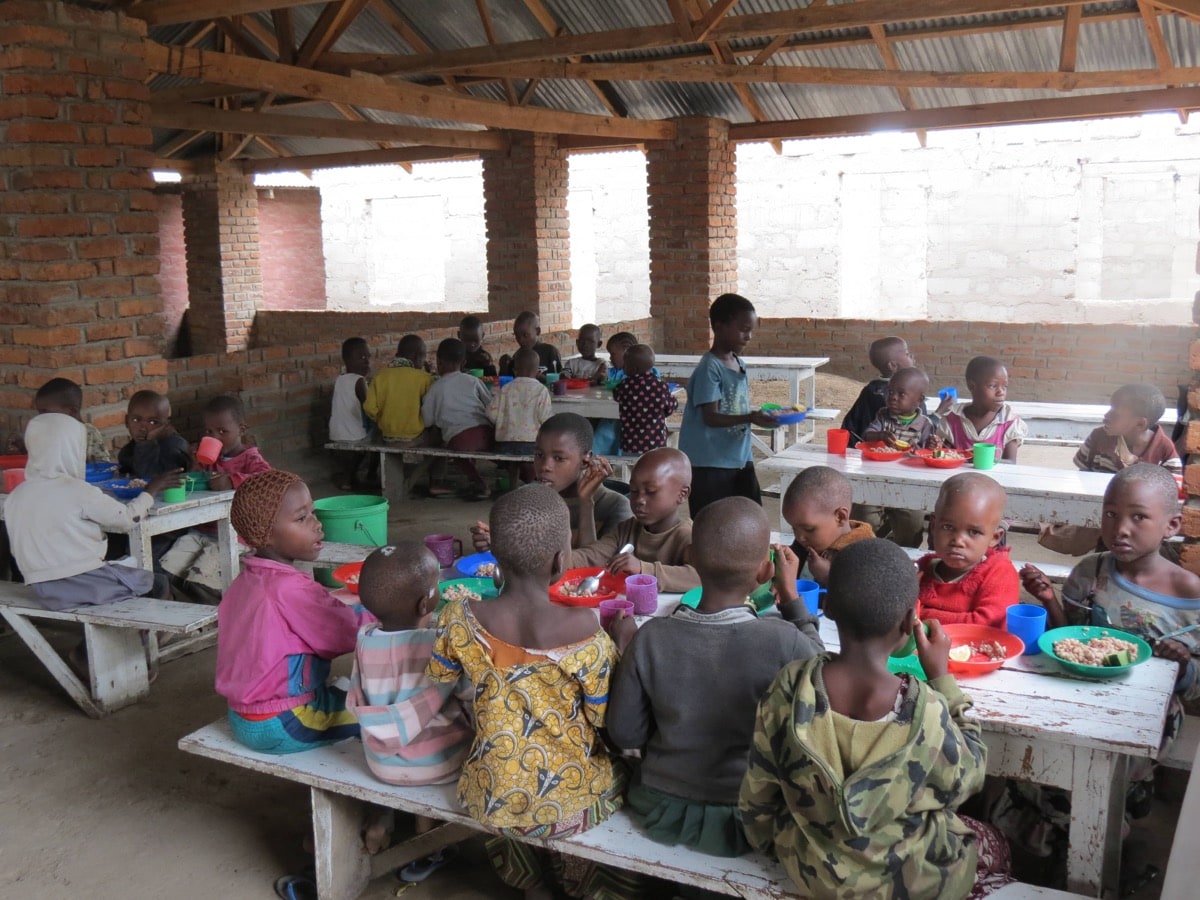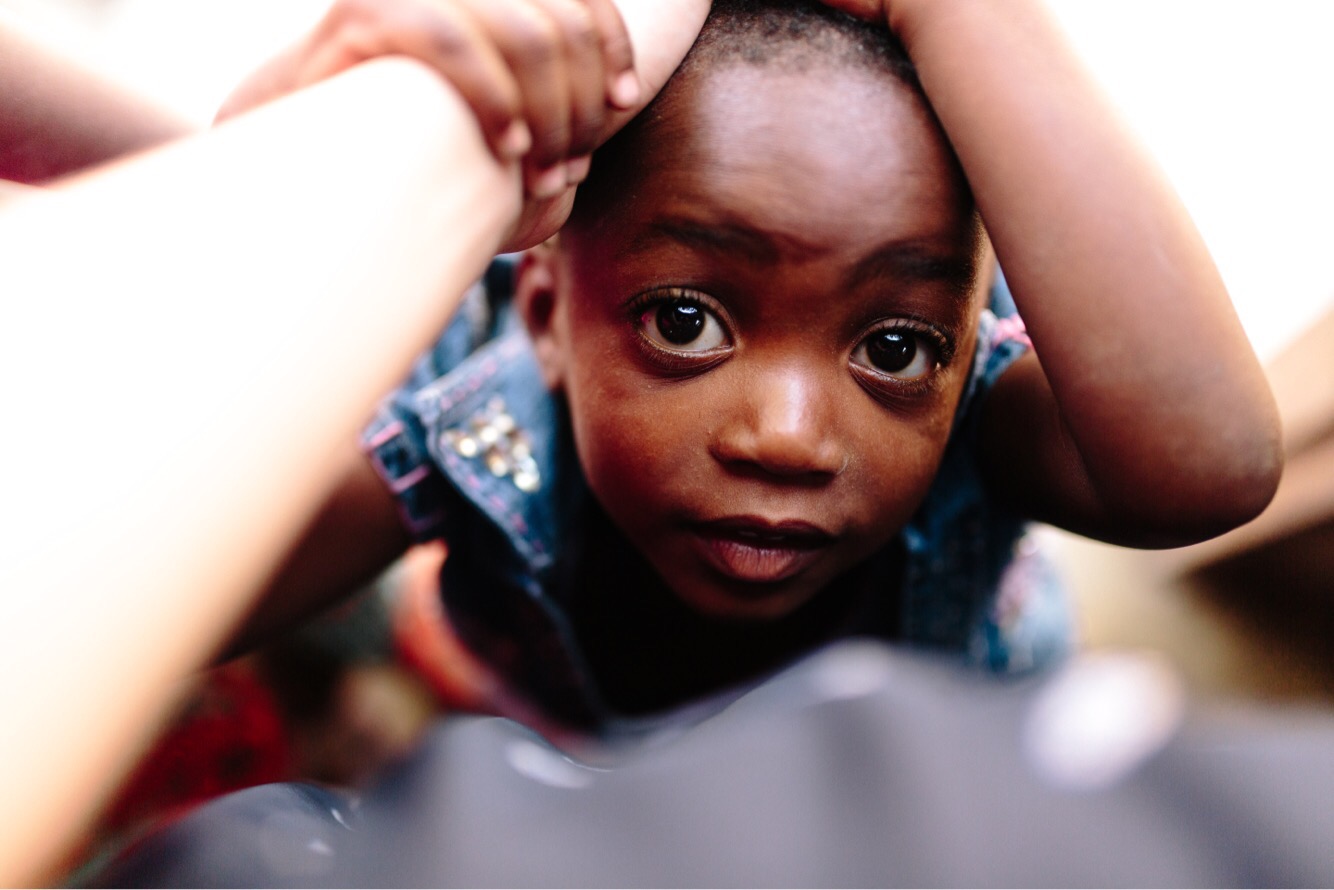Jambo from Tanzania!
It is Grace Ristow again. Today marks the fifteenth day of our trip to Tanzania. We are yet at Huruma Hospital in Rambo and we have four different groups doing different things in the hospital with the nursing students from the nursing school nearby. One of the groups was with labor and delivery, one of the groups was with anti-natal, Hannah the social worker was in the counseling area and the other group was in post-partum and another in the children's ward.
Today I was with Jasmine and we were in the anti-natal ward. We started out the day by listening to a prenatal education class on pregnancy and malaria. The student nurses teach the education classes and although we couldn't understand the Swahili the student was speaking, the student we were with explained some things to us. We learned that pregnant women are more susceptible to malaria because their immune system is less effective when they are pregnant. We also learned that the pregnant women can take pills during pregnancy to help prevent malaria. After the education seminar, we went into the examination office and watched students exam pregnant women. After a while, they asked if Jasmine or I would like to do an exam. I jumped right in and did the next woman that walked in and Jasmine followed with the one after that. We assessed for any abnormalities in the head or hair, made sure that the ears were in line with the eyes, checked for polyps in the nose, and checked the tongue and mouth for signs of anemia. We also assessed the breasts for any lumps or any other abnormalities as well as the patency of the nipples for breast feeding. Then we assessed the stomach. First we assessed the shape of the stomach, which is typically oval, measured the fetal height, and palpated the stomach to feel for the baby's head, buttocks and back. After finding the back of the fetus, we pressed a fetal scope to the belly to hear the baby's heartbeat. We can do that here because the women do not have near the amount of fat that American women have with pregnancy, due to the diets here which have little to zero processed food. Then we assessed the legs for edema and pressed on the feet to test for deep vein thrombosis. The final part of the body to assess was the back which we assessed for edema and kyphosis.
The other groups had much different experiences! Katie and Allie were in pediatrics giving shots to children and babies. They mentioned that it was kind of hard because they hadn't had much experience with shots and the babies were squirming! They were also surprised that the women were so willing to let strangers hold their babies and give the babies shots. Karlie and Melinda were in labor and delivery and got to see a vaginal birth as well as a Cesarean section. They thought it was interesting that with most deliveries here, they cut vertically down the stomach instead of along the bikini line, which is opposite the United States, although for this specific one, they did cut it along the bikini line because the woman had had that done before with a previous Cesarean section. They said it was very graphic with a lot of cutting and pulling and tugging to get the skin apart. Plus the baby actually was stuck in the stomach and almost didn't make it! It was definitely traumatic! Rachel and Sarah were in post-partum but also labor and delivery and got to see a birth as well as take newborns to the immunization clinic to get shots. Hannah was with counseling services and got to see four different patients get counseled who had HIV/AIDS.
In the afternoon, we got to hear a lecture from one of the doctors, the one that had been with Hannah earlier, Dr. Kiwelu on the topic of counseling and HIV/AIDS. He had Hannah talk a lot about what she observed with each patient and then actually brought three of the clients that had been seen for counseling for case studies. One man had been a farmer but was now too sick to farm as well as had a deformed leg. One man was a truck driver whose wife and child also had HIV and the doctor mentioned this was not uncommon as truck drivers have a high risk of getting HIV here in Africa. The third man was older and a lot weaker with total left sided weakness that would have looked like a stroke, had it not been that the guy was HIV positive and that kind of weakness is common in that particular stage of HIV. It was really cool at the end because the doctor praised nurses and said that patients couldn't survive without them and they catch things the doctors don't. That is not something nurses typically hear in the United States. The lack of hierarchy between nurses and doctors here is certainly nice!
At the end of the day, some of the students from the nursing school next to the hospital that had been teaching us came to spend time with us talking and drinking a soda. They taught us how to dance the African way and we realized how stiff we Americans can be while dancing compared to them who moved their whole body effortlessly! They are such a graceful people! We are grateful for all the things they have taught us including dancing! Tomorrow is our last day at the Humera Hospital and there will be a big goodbye ceremony at the end which we are all looking forward to!



